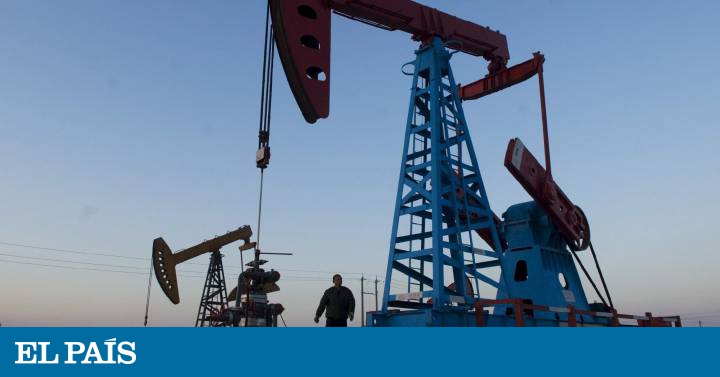The catastrophic fall in the price of US benchmark crude (West Texas, WTI) shocked investment markets on Monday and offered a worrying picture of how far the consequences of the economic crisis caused by the coronavirus can go. For the first time in history, the price of the WTI was negative (-37.63 dollars per barrel) compared to 18.33 that was quoted the previous Friday. The collapse of the WTI raises the question of whether brent,the international benchmark crude may follow the same fate as the first. It seems unlikely, given the different characteristics of the markets in which both types of crude oil operate, but Monday's seizure constitutes a serious warning about the difficulties that some specific markets have in adapting to situations of sudden drop in demand.
Because the unusual crisis of US oil has its ultimate origin in the abrupt decrease in the expectations of consumption of this and its derivatives caused by the containment measures and restrictions on mobility imposed by the covid-19 pandemic. Broadly speaking, the almost free fall in demand has caused movements in the market whose objective is to store current crude, with prices too low for companies' balance sheets, to offer it in the future when prices recover. The problem is that investors have considered that the storage capacity cannot absorb the excess oil and, therefore, they want to get rid of it. To the point that they are willing to pay not to receive it. In markets such as the United States, the holders of physical oil have understood that the presumption of incapacity for storage is plausible and, therefore, the unbridled flight to dispose of the crude oil has caused the price collapse.
The depression of the oil market in the United States forces us to wonder whether OPEC's decisions to cut production have been successful or are they going to be insufficient. It is likely that they may have an effect in the medium term, but the truth is that they have encountered the obstacle of the alleged deposit deficit. And the present consequences can be fatal for the projections of balancing the international market at a reasonable price in 2022. Present price stability will only be achieved, as it is easy to deduce, if demand increases significantly (unlikely in the coming months). ), if supply is further reduced (which would require a new decision by OPEC and the Trump Administration) or storage capacity is increased. Without one of these responses, episodes of explosive volatility cannot be corrected.
The brent, international benchmark crude, also going through a downswing in prices due to the slump in demand. To correct it, the cuts of the expanded OPEC were adopted. The causes that operate on the WTI are the same that act on the brent, although the markets are different. So the producing countries would do well to consider the second equilibrium hypothesis, that is, whether it would not be advisable to reconsider the supply control plans. The persistent collapse or stagnation of prices is too serious a problem for the stability of investment markets.
You can follow EL PAÍS Opinion on Facebook, Twitter or subscribe here to the Newsletter.

